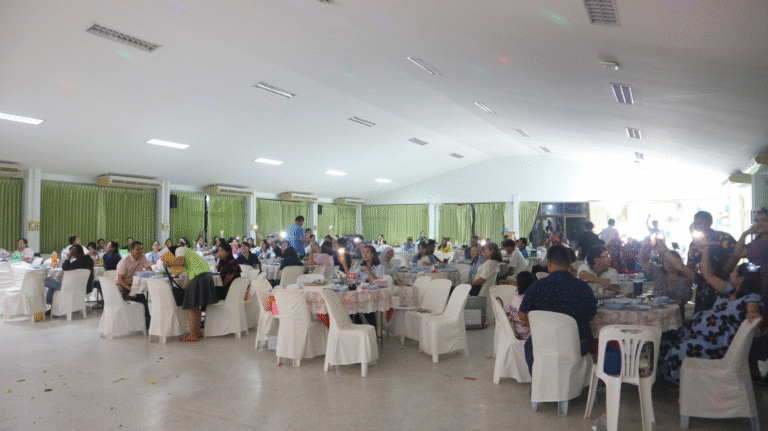Reporters: Asst.Prof.Dr. Prapot Maliwan
Assoc.Prof.Dr. Pornsil Seephueak
Asst.Prof.Dr. Nion Chirapongsathonkul
Asst.Prof.Dr. Worawitoo Meesook
Evidence Date: during 2024 Jan-Dec
Related SDGs:
Related SDGs:
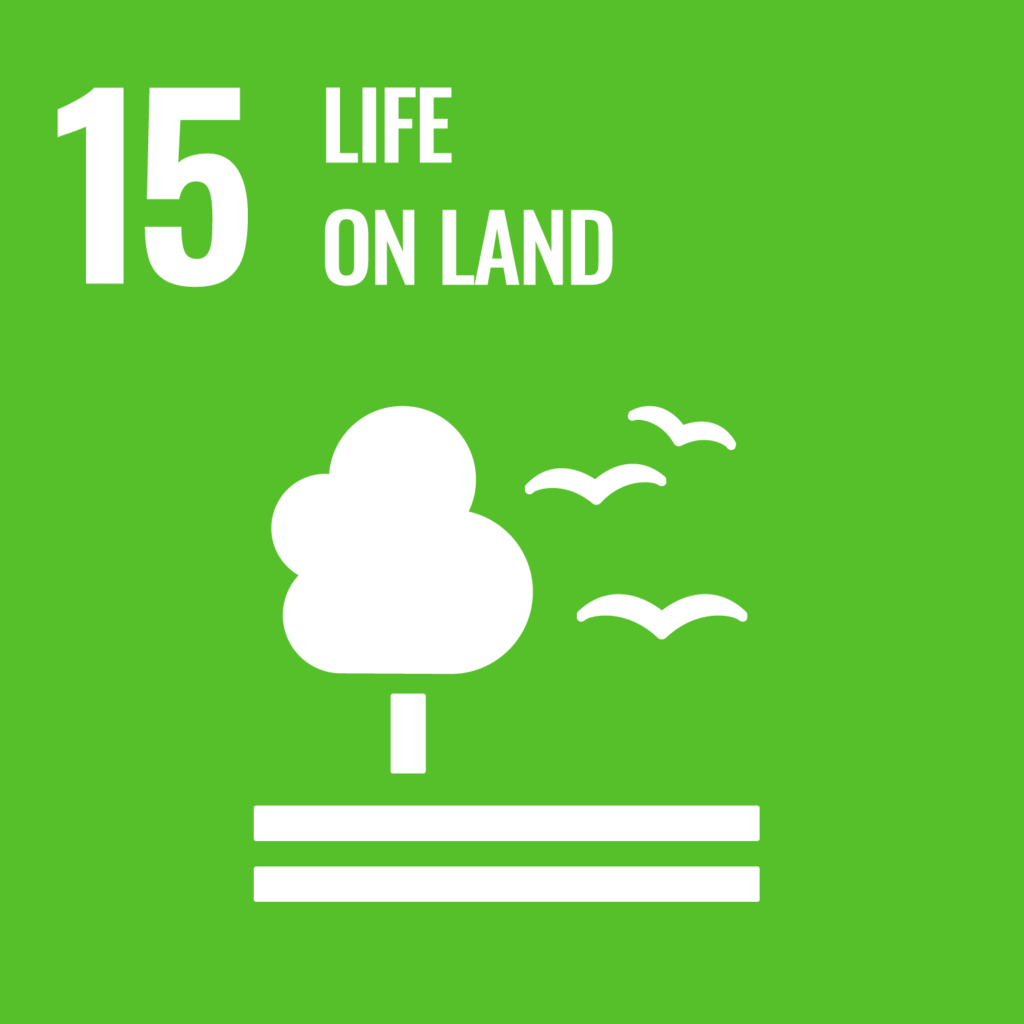
Related Indicators: 15.2.1
Details:
On March 9, 2024, the Faculty of Engineering organized the project “Engineers Unite for Reforestation and Aquatic Animal Release” at Ban Khok Mueang Plantation Area, Bang Riang Subdistrict, Khuan Niang District, Songkhla Province. The project aimed to integrate environmental conservation with student learning experiences. The event was honored by Asst. Prof. Bunjerd Potakarat, the Deputy Dean for Student Development, who presided over the opening ceremony. Village Headman Thanin Kaewrat, leader of Village No. 12 and president of the Mangrove Forest Conservation and Coastal Farm Club, served as a guest lecturer. Students learned about the importance of mangrove forests in preventing coastal erosion and supporting marine biodiversity. The project also promoted collaboration between local communities and the university in environmental stewardship. It provided a valuable platform for students to apply engineering knowledge to real-world ecological restoration. The event reflected the university’s mission to promote community engagement and sustainable development. Through this initiative, students gained both academic and moral lessons in conservation responsibility.
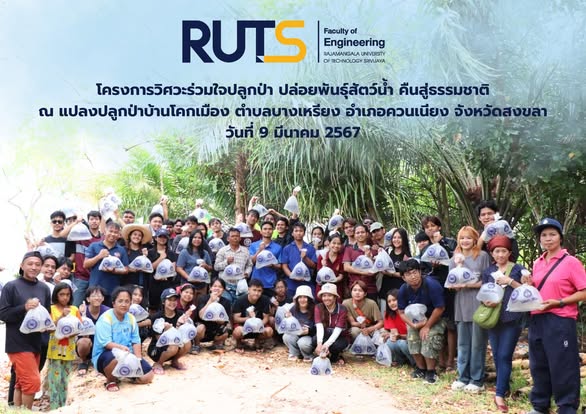
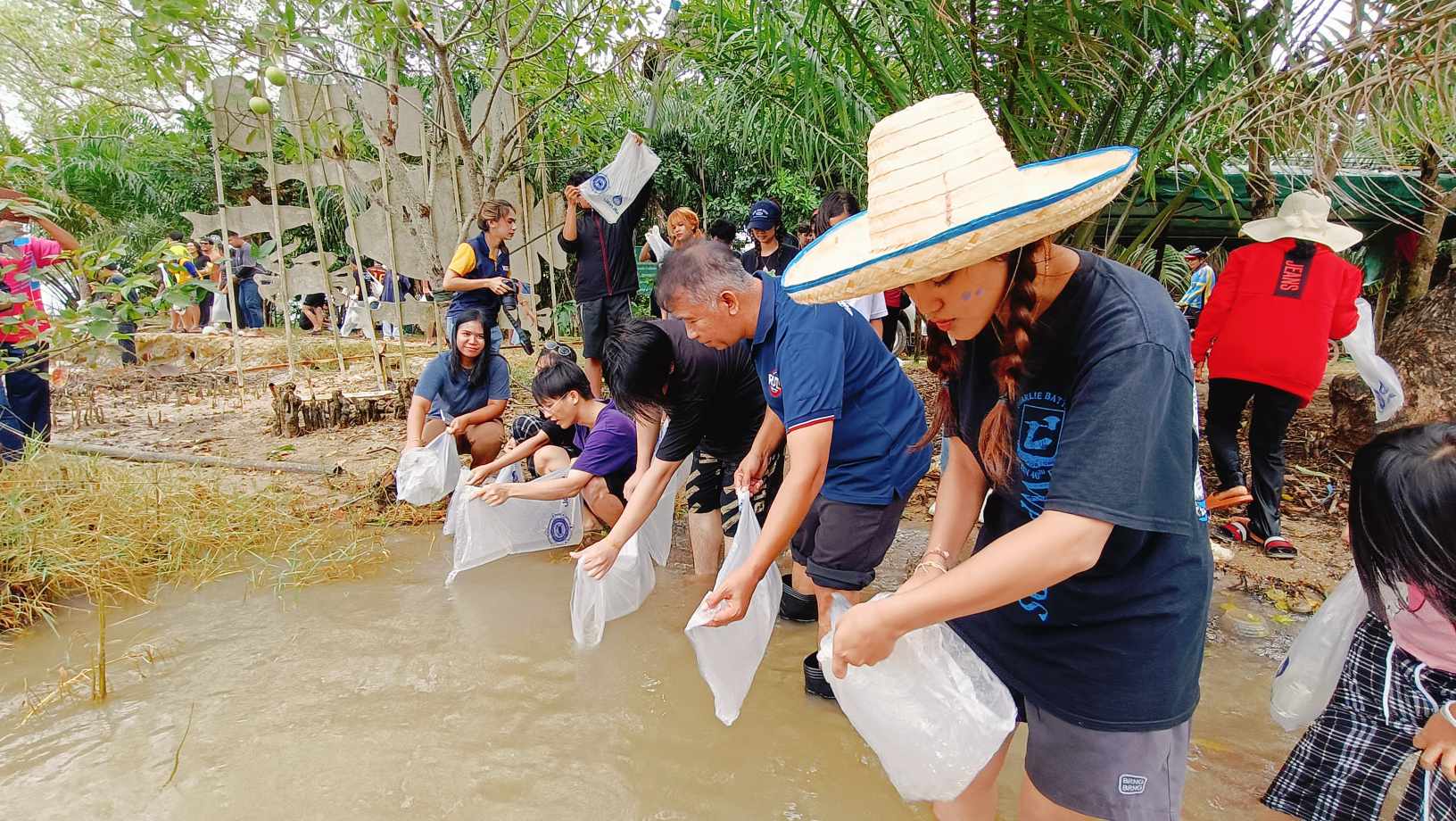
The main activities focused on hands-on environmental practices. Students and residents worked together to build artificial fish homes to increase aquatic habitat diversity. They also participated in seedling propagation and mangrove planting to strengthen coastal forest zones. The release of juvenile crabs and fish species symbolized a commitment to restoring the natural balance of local ecosystems. Each activity was designed to enhance understanding of ecological interdependence and habitat conservation. The local experts guided participants on traditional methods of forest care and marine restoration. Students observed how engineering principles could support sustainable environmental design. The activities also encouraged teamwork, leadership, and problem-solving skills in natural contexts. By engaging directly with the environment, learners developed empathy and responsibility toward nature. The collaboration created a learning atmosphere where knowledge, ethics, and community values were integrated.
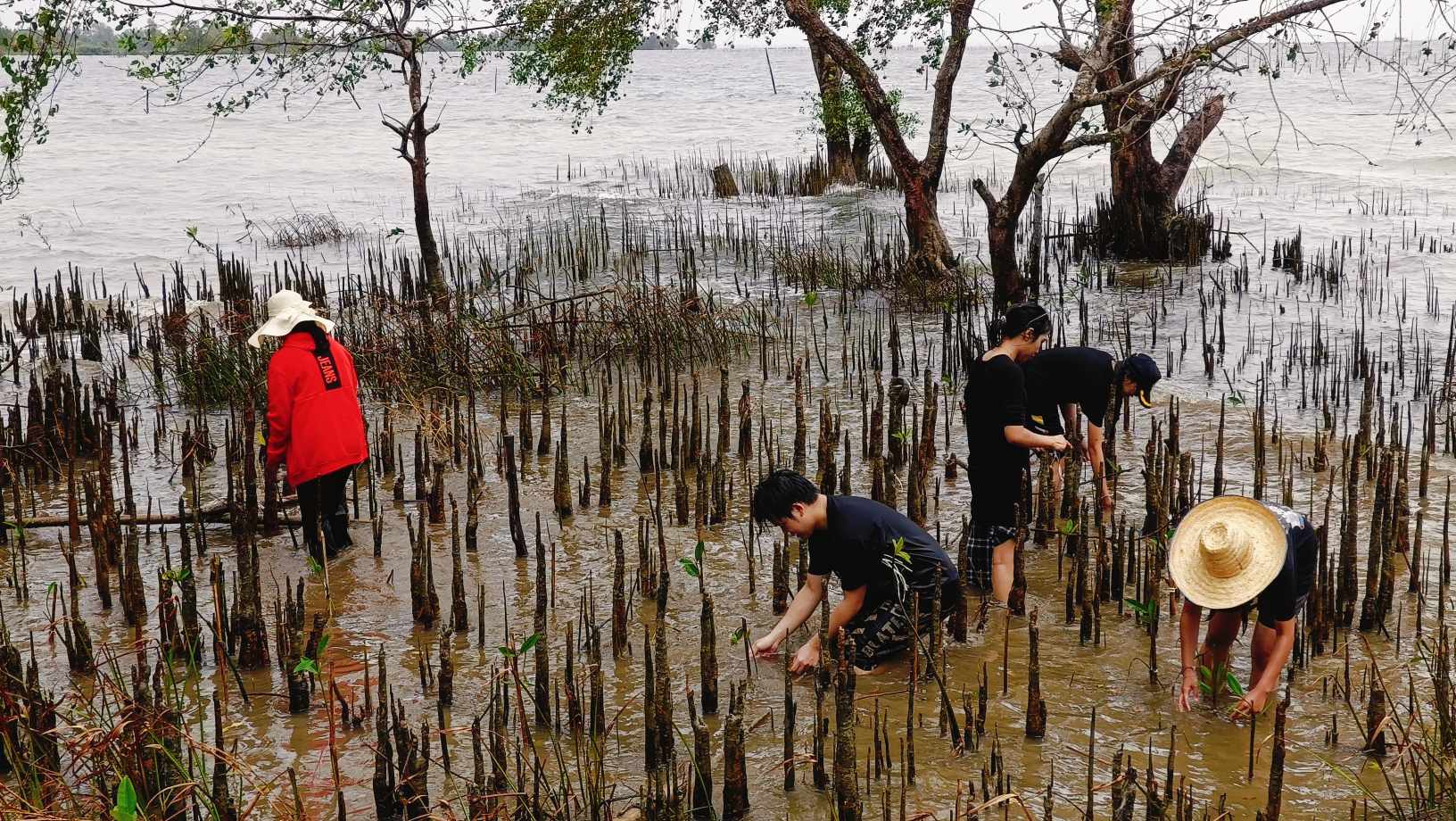
In addition to fieldwork, students learned about organic compost production as part of the project’s sustainability component. This activity demonstrated how biological waste can be turned into useful resources to support mangrove and agricultural growth. Participants discussed how community-based conservation aligns with sustainable engineering practices. The project emphasized the importance of education through action, allowing learners to connect classroom theories with environmental problem-solving. Faculty members highlighted that reforestation and aquatic restoration are not only ecological acts but also social responsibilities. The interaction between villagers and students fostered mutual respect and knowledge exchange. Students realized that sustainable management requires both scientific understanding and community cooperation. The event also served as a model for future educational projects integrating engineering, ecology, and local wisdom. Through this project, the Faculty of Engineering strengthened its role as an academic leader in environmental education. Ultimately, the initiative cultivated young engineers with awareness, compassion, and responsibility for a sustainable future.
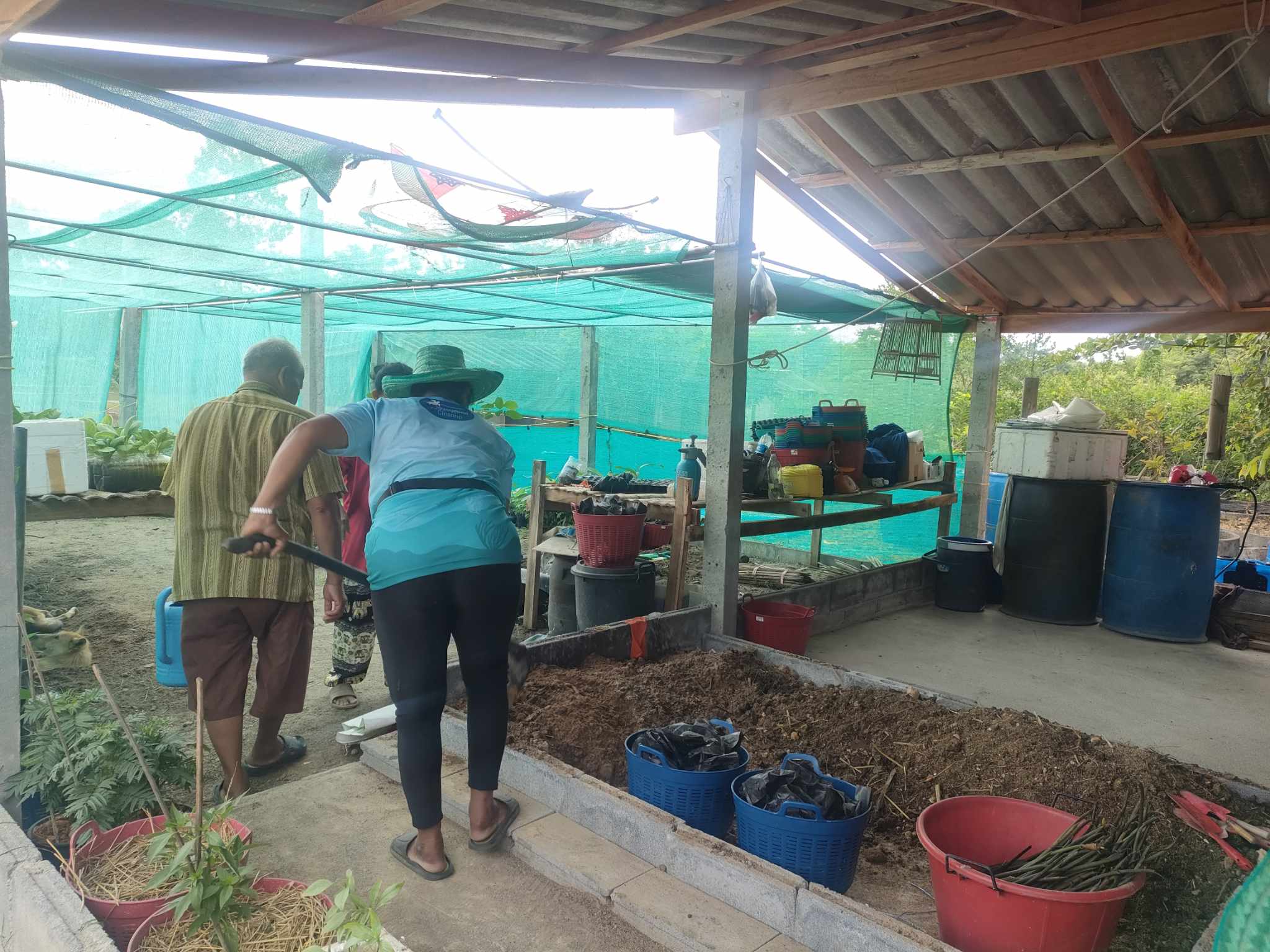
Related Links:



